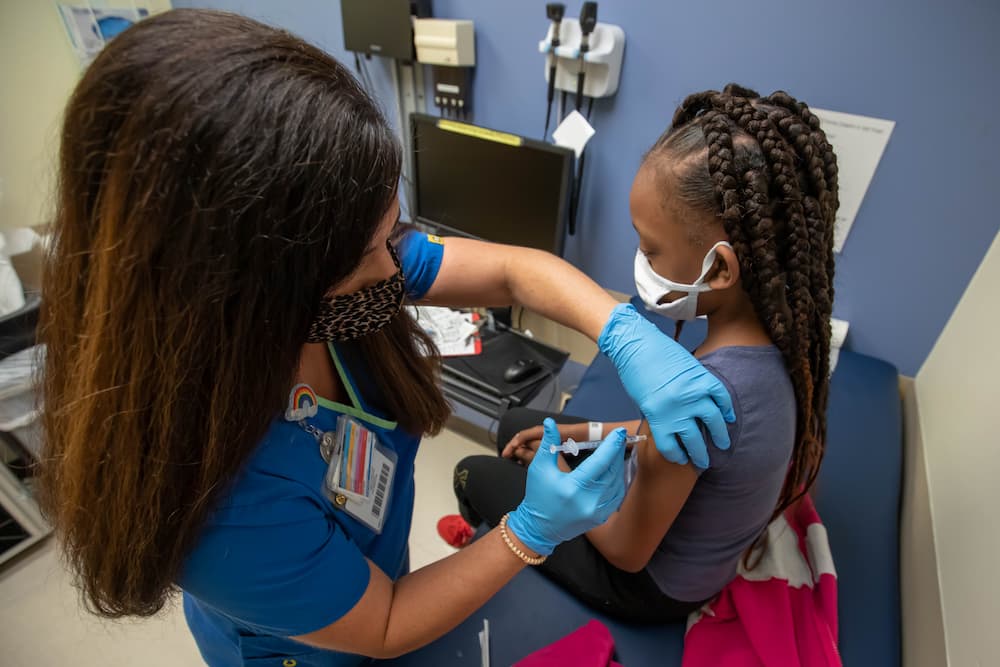Omicron study published by New England Journal of Medicine

A Children's of Mississippi expert was one of the researchers who conducted a study recently published by the New England Journal of Medicine. The study examined the sustained protection and effectiveness of vaccination against the Delta and Omicron variants of COVID-19 in children.
The study, co-authored by Dr. Charlotte Hobbs, professor of pediatric infectious diseases, counts Dr. Austin Harrison, pediatric hospitalist at Children’s of Mississippi, as well as members of Hobbs’ research team, Lora Martin, NP; Lacy Malloch, project manager; and researchers Cameron Sanders and Kayla Patterson as group authors. The study found that vaccination with a primary series of Pfizer-BioNTech COVID-19 vaccine reduced the risk of COVID-19-associated hospitalizations in children ages 5-11 years old by 68 percent during the Omicron surge earlier this year.

For older children, during the Delta period, vaccine effectiveness against critical illness with COVID-19 (requiring life support) was found to be 96 percent among adolescents ages 12-18 who were vaccinated with a primary series. Vaccine effectiveness against non-critical COVID-19-associated hospitalization without any requirement for life support was 91 percent.
Importantly, the analysis involving adolescents 12-18 during the period of Delta variant circulation in the United States showed no decline in protection from two vaccine doses against hospitalization for COVID-19 for more than 6 months after vaccination.
In the Omicron surge, vaccine effectiveness against critical COVID-19 requiring life support was 79 percent among adolescents ages 12–18 years vaccinated with a primary series. Vaccine effectiveness against non-critical COVID-19-associated hospitalization without any requirement for life support was 20 percent.
Although this suggests a 17 percent decline in protection among adolescents between the Delta and Omicron periods, the more sustained protection against Delta variants for 6 months may suggest the declined efficacy against Omicron may be due to its escaping control by the immune system, although there may be some contribution of waning immunity given the timing of the study and the Omicron surge.
“We know that the vaccine will not likely protect against infection completely, but it will protect against more symptomatic and certainly severe disease,” Hobbs said, “And the study highlights the sustained vaccine protection among adolescents 12 to 18 against even non-critical COVID-19 hospitalization for 6 months over Delta and efficacy in preventing critical illness (at 79%!)-during Omicron.”
The analysis for older children was more detailed as more children had been vaccinated in this age group over the course of the study, as younger children have only become eligible since December.
Hobbs continued, “This study provides real-world data to support our recommendation that everyone, including eligible children and adolescents, should stay up to date on their COVID-19 vaccines according
to CDC and Mississippi State Department of Health recommendations to protect against severe COVID-19 disease, both that requiring life support and hospitalization itself.”


